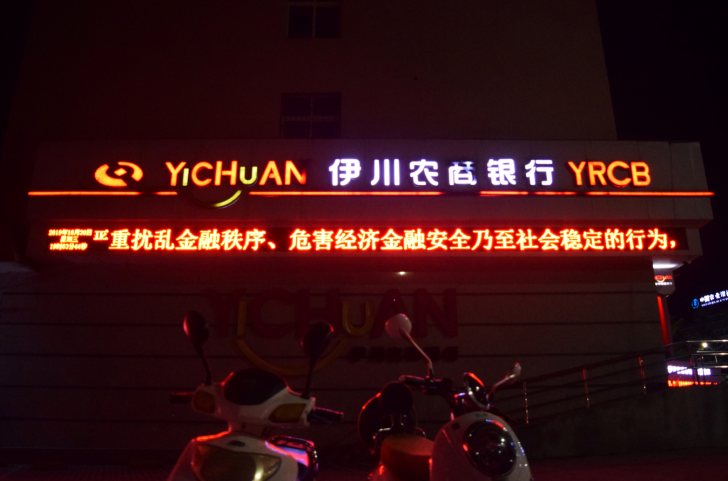For three consecutive days, depositors are pulling money out even when authorities already tried to address concerns of the troubled Chinese lender Henan Yichuan Rural Commercial Bank that had outstanding bad loans amounting, at the end of each calendar year, to 1 billion yuan ($142.1 million).
In a move to project stability after talks about the bank's chairman being in trouble and the bank being on the brink of insolvency spread, smiling employees, local cadres, business leaders and banking executives stood before a microphone at the main branch of Henan Yichuan Rural Commercial Bank, just outside the central city of Luoyang, pledging their support.
Still, it isn't enough for 31-year-old Li Xue, who showed up on the third day to withdraw thousands of yuan of her mother's life savings after hearing from fellow villagers that Yichuan Bank is in trouble.
Managers at the branch tried to save the account by telling her that her mother's three-year deposits would mature in March and would earn more than 10,000 yuan in interest.
Bank managers also offered her even higher-yielding products including supermarket gift cards.
Even if one female manager said that "Our bank is state-backed, and your money is insured by deposit insurance," Ms. Li still went on with her withdrawal adding that they "really can't afford to lose the money."
China's banking industry, specifically smaller regional banks that expanded aggressively in recent years, had liquidity concerns lately.
Together with Yichuan Bank in this predicament are the thousands of banks and cooperatives in China that scaled up in recent years.
According to the bank, in 2009, the rural cooperative became a commercial bank because of the deposits from farmers and country locals.
According to China Chengxin International Rating Agency Co., though Yichuan Bank has plenty of competition that includes large state-owned banks in nearby Luoyang, as of September 2018, Yichuan Bank has 82% of loans and 71% of deposits in its county.
Yichuan Bank and other small lenders have suffered from bad loans buildup because of the slowing economy in recent years.
Yichuan Bank is the fourth small lender that authorities helped in 2019.
China's first bank bailout since the 1990s was in May when regulators took control of Baoshang Bank in Inner Mongolia.
This move led to concerns about the financial health of other small lenders and other financial institutions, squeezing liquidity in China's interbank market.
Because of this, Beijing has been careful not to announce any takeovers.
A recent estimate by S&P Global, that included poor quality rural institutions flagged by the Chinese central bank, showed that troubled banks are just 4% of the total assets in China's banking system.





